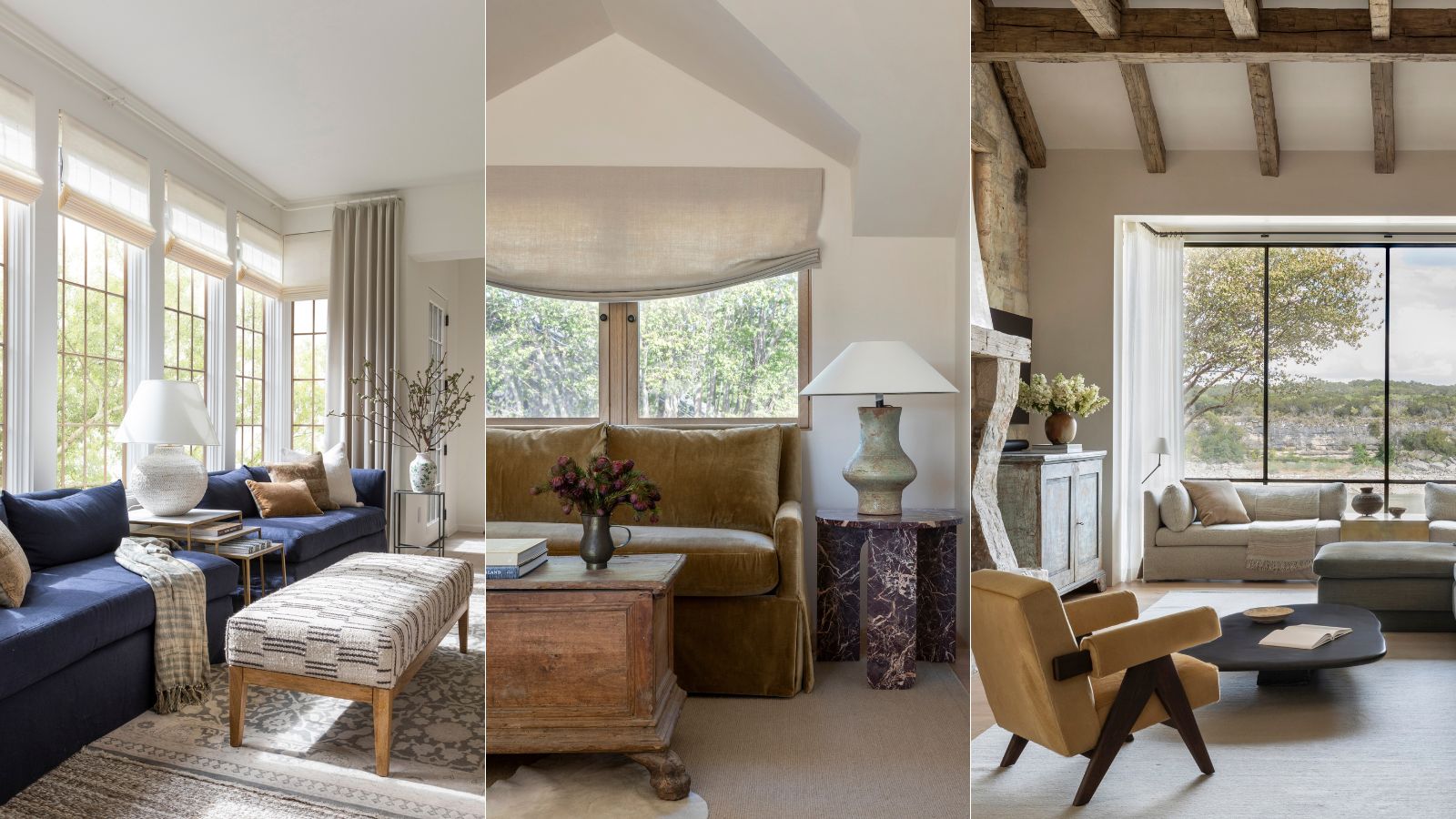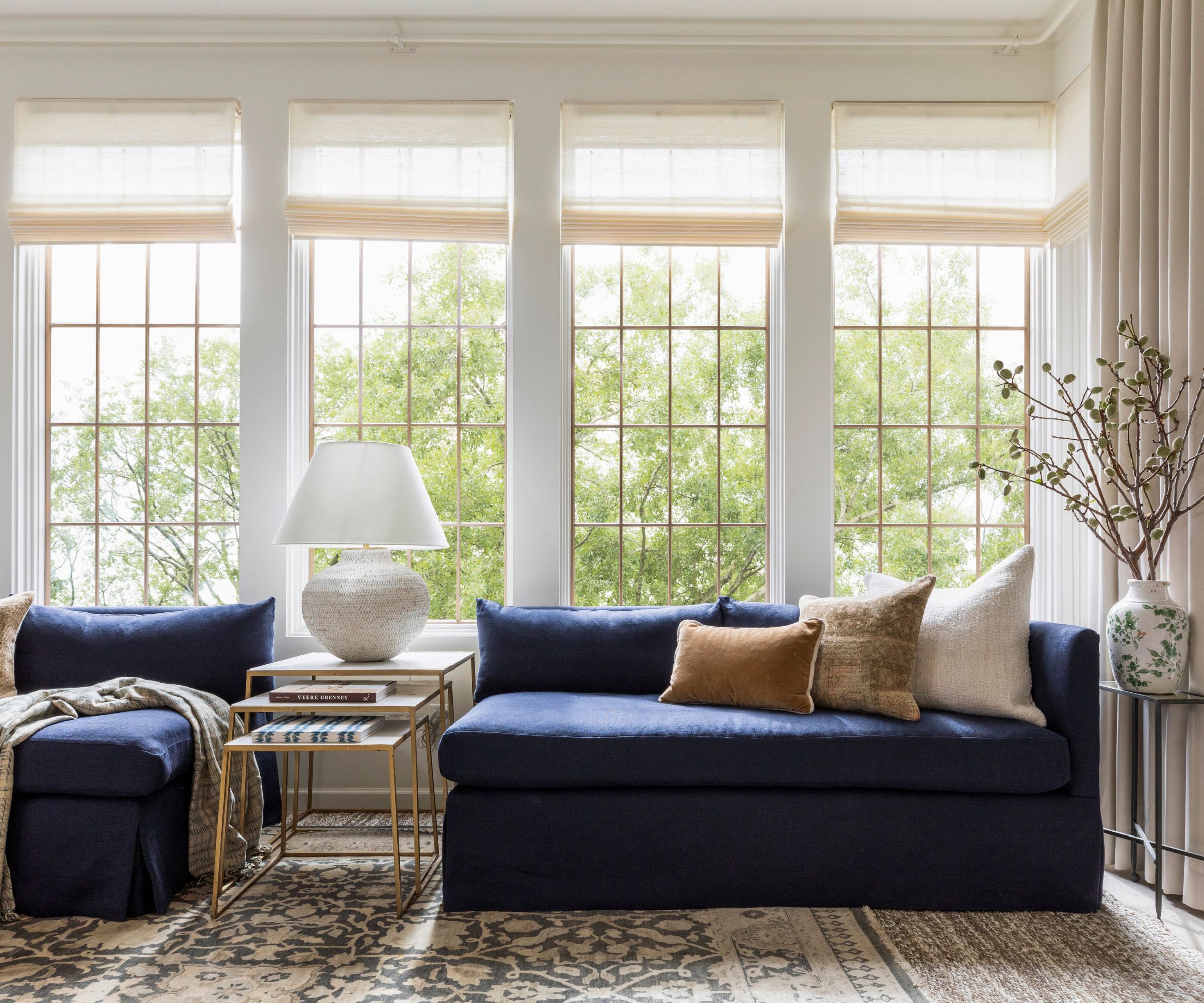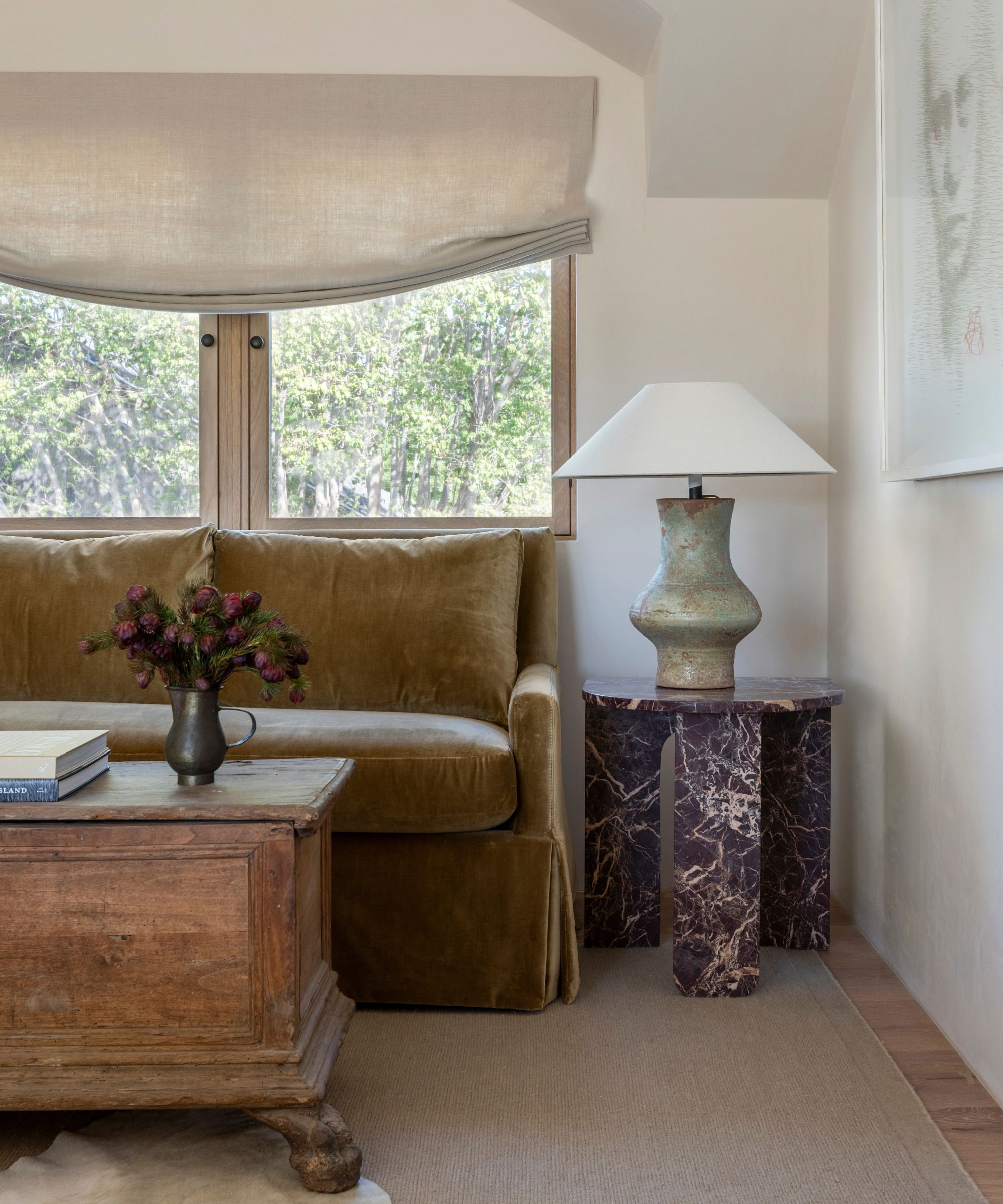
We often talk about on-trend styles of furniture and the most expert-approved furniture arrangments for your home here at H&G, but one thing we don't tend to dwell too much on is the legs on such pieces.
But, as it turns out, there is actually a rather big debate going on amongst interior designers and homeowners – aptly titled the 'legs or no legs' debate. Which essentially does what it says on the tin and describes the question behind whether the furniture in a space should be on legs or skirted down to the floor.
To help us with such a debate, designer Marie Flanigan has taken to Instagram to share her best advice when choosing living room furniture – and spoiler alert: it includes a clever balance of both.
'Let's jump into the legs vs no legs debate,' says Marie, opening the video. 'I'm here to argue that it's all about the mix of both.'
Typically advice given to help you make the most of a small room, having furniture risen up onto legs can give the illusion of more space in a small living room.
'When I have a smaller space that needs to feel lighter or more airy, that's when I really opt to use furniture pieces that have legs,' Marie explains. 'When you see the floor through a space, it can give the visual lightness and airiness that you're looking for to help it feel more expansive.'
However, as with most basic interior design rules, this small living room design rule can, and maybe should, be broken.

'In contrast with that, pieces that are upholstered to the floor or that are skirted – that's what gives stability, visual heaviness, and a more monolithic look to your room that then you can layer in more airy pieces with,' Marie continues.
Some of the biggest furniture trends for 2024 see more retro shapes including skirted and fringed pieces step back into the limelight.
Perfect for more traditional living room set-ups, skirts have also made their way into the bedroom with bed skirts seeing a revival (perhaps thanks to the Grandmillennial rise in popularity) and in the kitchen with upholstered banquette seating being a mark of a rather on-trend home.

So, what's the answer? According to Marie, the harmony lies in a mix of both furniture with and without legs in a single space. Like in this snug space seen above, designed by Marie, the velvet couch has a skirt that falls down to the floor while the side table and antique coffee table are both up on legs (albeit, rather chunky ones).
Giving traction to the idea that matching furniture sets have died a death, making room for more eclectic living room furniture trends, layering different pieces in one room together creates a dynamic and interesting balance.
'There's nothing like a skirted sofa to help define a space,' adds Marie. 'If you're able to layer in pieces with legs behind it like a glass and metal console or a beautiful wooden side table to the side of it, it's really all about bringing in the mix of both which is what allows your room to feel layered and complete and interesting.'
Lulu & Georgia are excellent for marble side tables and coffee tables to add a touch of grandeur to your living room. The hairpin, bronze-plated legs on this side table allow you to look through the piece creating a sense of space.
If you're keen to jump on the fringed furniture trend, McGee & Co. offers this settee in various fabrics including this oatmeal and ivory stripe that is ready to ship. It will certainly add a playful touch to your room.
A stand-out Amazon piece, this waved nightstand is made from stunning natural ash and is handmade by skilled craftspeople. Designed to be a nightstand, the soft close drawer is great for hiding clutter - and could also moonlight as a side table in your lounge.
Tapping into the thought process of the experts when they design a space is a great way to learn from the best to help inspire the decisions in your own home. Hopefully Marie Flanigan's advice on pairing both furniture with and without legs inspires you to be more eclectic and thoughtful with your furniture choices.







